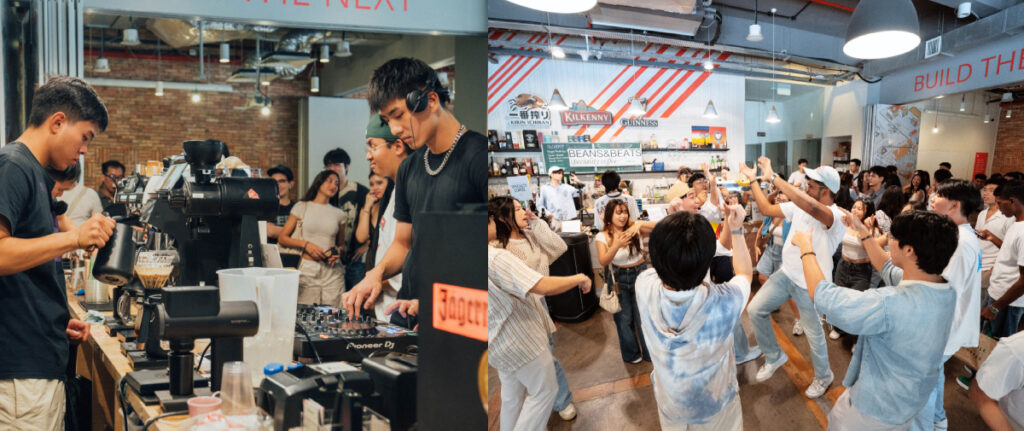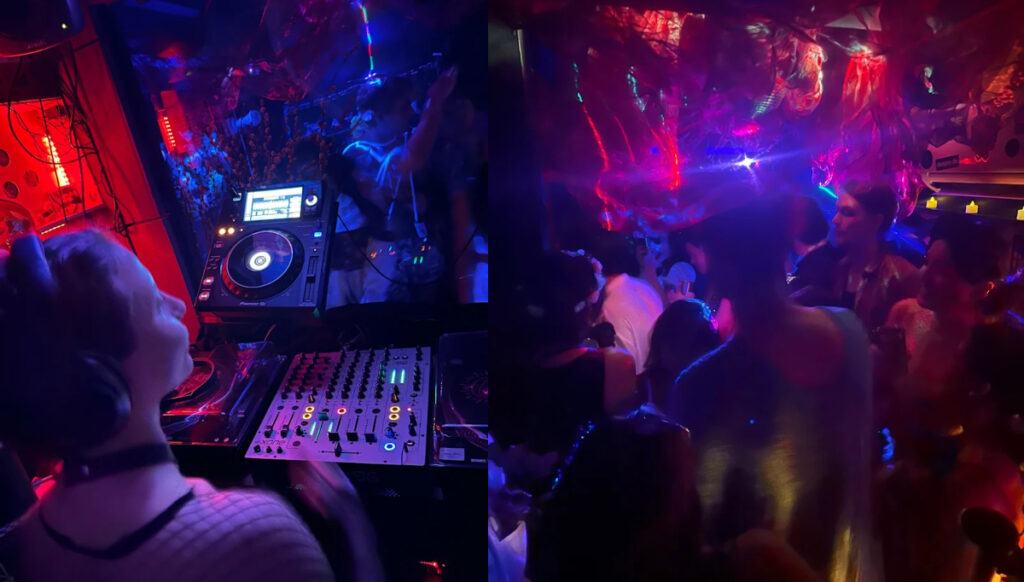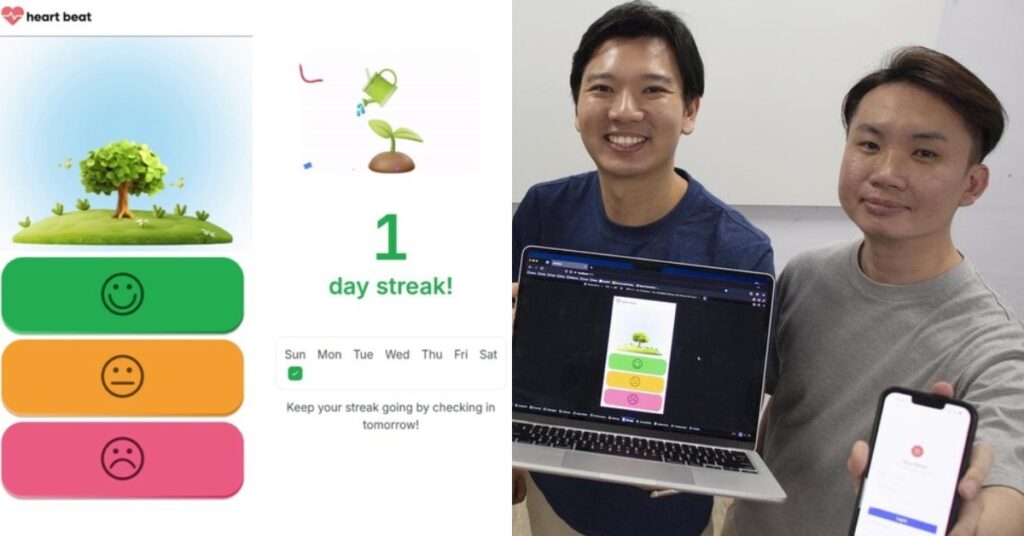Younger Singaporeans no longer want to party at night with booze—they are doing it in the day, sober
Loud pounding music resonated around Clarke Quay, but the streets were emptier than I would have expected.
When I visited in Jul for my 25th birthday, my night was fun but hollow: an over-commercialised experience that cost me a hundred dollars and left me wondering if it was worth it—and I wasn’t alone.
Turns out, the booze and disco lights disillusion many younger Singaporeans, and they turn instead to day clubbing and sober parties.
And businesses are taking advantage.
We take a look at how some businesses are filling a gap left open by traditional nightlife, and whether cashing in on this trend is a worthy investment.
Creating a new way to party
One of the most prominent names in Singapore’s day clubbing scene is beans&beats, known for its coffee clubbing events.
The collective has held raves in a diverse range of venues, from retail spaces and museums to rooftops and shopping centres. It even recently partnered with brands such as snow, surf, and skate attraction TRIFECTA, as well as youth-led social initiative ForRealCo., for a two-day takeover at Funan Mall.

Rather than saying that something was missing with Singapore’s nightlife scene, Matteo Lie, one of the co-founders of beans&beats, shared that the collective started out of a desire to create more spaces for conscious socialisation through coffee and music.
He explained that in a heavily digitalised world, people often crave genuine human connections and experiences. Through their concept, they also wanted to prove to sober or sober-curious individuals that it is possible to enjoy themselves without booze.
beans&beats’ first event was held at Pearl Hill Terrace in early 2024. It turned out to be a success, with a sell-out crowd of 100 tickets and 200 people on the waiting list.
That said, Matteo noted that the concept initially faced some misconceptions:
“People arrived expecting alcohol to be necessary for enjoying the music. Rather than directly addressing this, we let the experience speak for itself—showing attendees and our online community that great times don’t require alcohol when you have good coffee and music,” said Matteo.
Since then, beans&beats’s events have resonated with many Singaporeans seeking more affordable parties where they can let loose, while also reducing their overall alcohol consumption.
The collective has also travelled internationally to participate in events, specifically in Kuala Lumpur, Malaysia; Melbourne, Australia; and Seoul, South Korea—all within a year of its launch.
While beans&beats kept their finances under wraps, Aden Low, the co-founder of business along with Matteo and Ethan Lee, shared that approximately 60 to 70% of their events continue to sell out today, although this percentage is dependent on the venue’s capacity. A cross-check of their Telegram community chat and Eventbrite page shows that three of the five events held from May to the present have sold out.
These numbers indicate that Singaporeans aren’t abandoning music or community. They’re just moving away from late nights and heavy drinking, creating demand that businesses like beans&beats are meeting with their novel party formats.
Night party concepts are pivoting amid demand change

This shift away from nightlife isn’t unique to beans&beats. For Wild Pearl, once known for hosting some of Singapore’s smallest but most intimate parties, the pivot has been just as telling.
Christopher “Chris” Shearmon, the co-founder of the company, who has hosted parties in the UK before moving to Singapore, said traditional clubbing has lost its carefree spirit. While he commended many indie clubs that attempt to revive the hype, it has been challenging.
The optimism missing from nightclubs was returning in wellness spaces, he said, where attendees seek less hedonistic ways to enjoy music as they age.
“The weird thing I see is that the more someone parties, the more their health deteriorates,” he said, which gives birth to an underserved community of people who want to dance and enjoy music, but not stay out late or overindulge.
To bridge that gap, Wild Pearl has shifted to wellness-driven events that blend music with movement. “What you’ll often see with our concepts is that music is the main pillar, but there’s always something added that involves movement,” Chris explained.
One example? DJ-ing from a cargo bike at 5AM while 20,000 runners streamed past them. “That’s a huge club experience. I don’t know anyone who’s DJed in front of 20,000 people this year, not even the big shows at Pasir Panjang Power Station.”
The pivot has also reshaped Wild Pearl’s revenue model, shifting the bulk of income from ticket sales to event programming, venue setup, and equipment rentals. Community events, such as cargo bike rides, serve as low-risk tests before concepts are refined into paid corporate offerings.
‘We prove it with the public, then get paid in a B2B context,’ said Chris.
By adopting flat fees and having diversified income streams, Wild Pearl can operate without the constant pressure of selling out tickets. “We don’t have to cross our fingers and be stressed on the night if we’ve sold enough,” he said.
We’re not asking people to stay out super late and drink a lot because that’s the only way we can make money. We have more options for people to support our events.
Christopher Shearmon, co-founder of Wild Pearl
People still like to party, they are just doing it differently now
The appeal of day clubbing and sober parties has also attracted frequent partygoers, such as 28-year-old content creator Mathilda Huang, due to their practicality.
“I once walked for 40 minutes home because it was so expensive for a 10-minute drive home. With day clubbing, it’s so convenient because I can go to bed early, and if the music is good, it doesn’t really matter if I have alcohol or not, I know I’ll have a good time.”
While she still supports her favourite DJs at nightclubs, Mathilda said she prefers attending sober parties with friends, as responsibilities like work and family take priority.
“Would I go to another day or sober party again? Definitely, I’m going for one on Saturday! (Sep 27),” she cheerfully added.
This isn’t about whether young people still know how to party—they do. They’re just partying differently from their parents.
Between the 1990s and the 2000s, there weren’t many activities to do at night. Clubs served as places to socialise and meet new people while listening and dancing to music, allowing establishments like Zouk (the OG one at Jiak Kim) to grow Singapore’s club scene.
However, many circumstances, from tightened regulations to rising rentals, have led these businesses to find more ways just to make ends meet. But in doing so, clubs have driven younger crowds away with overpriced drinks and the same recycled tunes.
On the surface, day clubs and sober parties are a stark departure from traditional nightclubs—but ironically, they revive the spirit that defined Singapore’s original nightlife: spaces where people can dance freely and truly connect.
- Read more articles we’ve written on Singaporean businesses here.
Featured Image Credit: beans&beats, Wild Pearl










